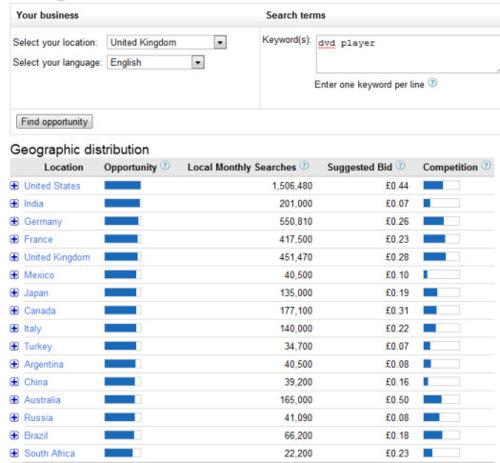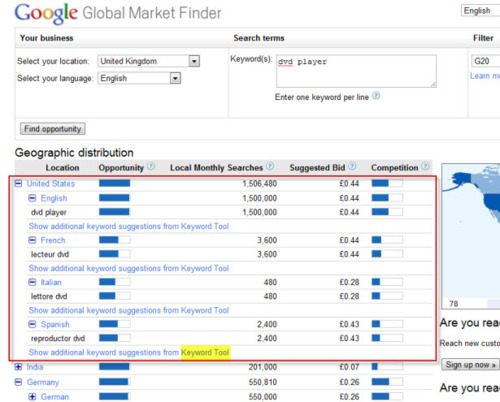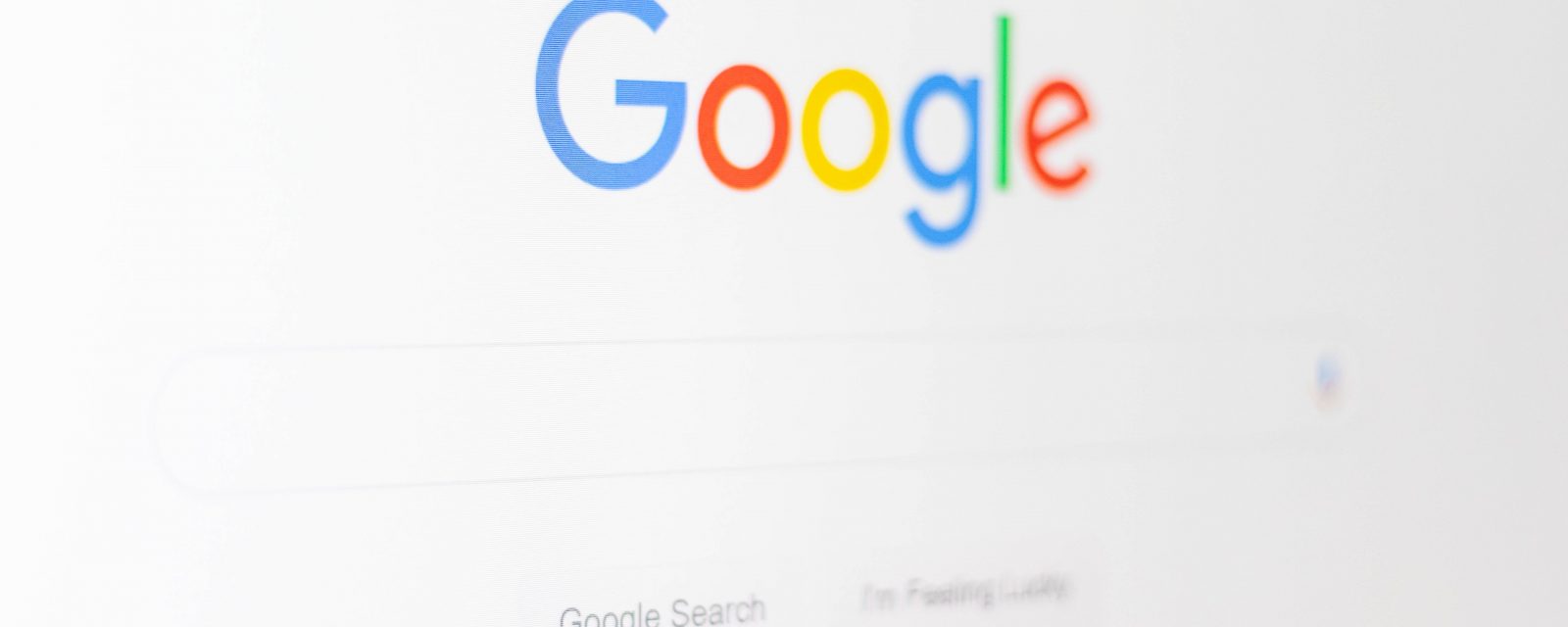Slowly but surely Google is starting to realise that the internet makes it for many businesses easier to go global.
For years its applications, such as Google Translate were pretty naff and the translations not very accurate at all. This is changing now. Google launched a tool and a portal that will help businesses to research opportunities in other countries. Both are really focused on international PPC (Pay Per Click) and all lead essentially to using Google Adwords, however, in general still useful tools for outlining any online marketing strategy.
Let’s have a look at the tool, the Google Global Market Finder. I used an an example “dvd player” and I’m located in the UK and speak English. Then you just click on “Find opportunity”. And voila! Your opportunities are listed.

The country list generated, outlines the level of opportunity, the number of local searches and the suggested Google Adwords bid cost and the Adwords competition levels. So from this chart you could derive to the conclusion that you should maybe translate your site into French and advertise in France, or you start advertising in India with your English ads.
When you click on the + symbol the navigation expands as in this example for the US. It outlines the number of searches in all the languages spoken or searched for in the US. Even if the phrase “DVD players” isn’t probably the best example in this case, however, there seems to be evident that there are many searches in French and Spanish and this may also influence your marketing strategy on a local level.

Once you’ve decided which countries and languages to go for, Google has a number of useful information on the Global advertiser portal where there are a number of tools to help you localise your Adwords ads, as well as your website with tools, such as Google Translate Web Element and the Translator toolkit.
Google has come a long way here and I’m certainly looking forward to playing around and utilising those new tools.
But as piece of advice- in order to combat having grammatical or spelling mistakes or in order to localise your site for a new respective target market, I would always get in touch with native speakers or international online marketing specialists. Nothing is worse than launching your brand in another country and something on your website, whether it is an image or written text, is considered offensive in their culture. This could mean a lot of bad publicity and may also mean you will never succeed in that country.

